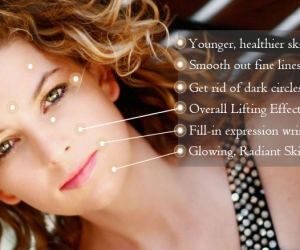Articles by

The exercises given here are of a type quite different from those recommended in the preceding article. They are designed to strengthen the power of accommodation, that is, the power of changing the focus of the eyes for vision at different distances, and will be particularly valuable to those who are either near-sighted or far-sighted. Eye […]

Improving your eyesight through eye exercises and massages is not only beneficial, it will also act as prevention toward any eye conditions that you might develop.
Most people will be surprised, even amazed, at the improvement in the condition of the eyes, resulting from two or three weeks of proper exercise of the eye muscles. This does not mean that you should keep up this work for only two or three weeks. If you make it a daily routine you can expect to enjoy strong eyes and good vision to perhaps the end of life.

General Anxiety Disorder is diagnosed when a person worries excessively about a variety of everyday problems for at least 6 months.13 People with GAD can’t seem to get rid of their concerns, even though they usually realize that their anxiety is more intense than the situation warrants. They can’t relax, startle easily, and have difficulty concentrating. Often they have trouble falling asleep or staying asleep. Physical symptoms that often accompany the anxiety include fatigue, headaches, muscle tension, muscle aches, difficulty swallowing, trembling, twitching, irritability, sweating, nausea, lightheadedness, having to go to the bathroom frequently, feeling out of breath, and hot flashes.

People with PTSD may startle easily, become emotionally numb (especially in relation to people with whom they used to be close), lose interest in things they used to enjoy, have trouble feeling affectionate, be irritable, become more aggressive, or even become violent. They avoid situations that remind them of the original incident, and anniversaries of the incident are often very difficult. PTSD symptoms seem to be worse if the event that triggered them was deliberately initiated by another person, as in a mugging or a kidnapping.

People with obsessive-compulsive disorder (OCD) have persistent, upsetting thoughts (obsessions) and use rituals (compulsions) to control the anxiety these thoughts produce. Most of the time, the rituals end up controlling them.
For example, if people are obsessed with germs or dirt, they may develop a compulsion to wash their hands over and over again. If they develop an obsession with intruders, they may lock and relock their doors many times before going to bed. Being afraid of social embarrassment may prompt people with OCD to comb their hair compulsively in front of a mirror-sometimes they get “caught” in the mirror and can’t move away from it. Performing such rituals is not pleasurable. At best, it produces temporary relief from the anxiety created by obsessive thoughts.

Panic disorder is a real illness that can be successfully treated. It is characterized by sudden attacks of terror, usually accompanied by a pounding heart, sweatiness, weakness, faintness, or dizziness. During these attacks, people with panic disorder may flush or feel chilled; their hands may tingle or feel numb; and they may experience nausea, chest pain, or smothering sensations. Panic attacks usually produce a sense of unreality, a fear of impending doom, or a fear of losing control.

Anxiety Disorders affect about 40 million American adults age 18 years and older (about 18%) in a given year, causing them to be filled with fearfulness and uncertainty. Unlike the relatively mild, brief anxiety caused by a stressful event (such as speaking in public or a first date), anxiety disorders last at least 6 months and can get worse if they are not treated.
Anxiety disorders commonly occur along with other mental or physical illnesses, including alcohol or substance abuse, which may mask anxiety symptoms or make them worse. In some cases, these other illnesses need to be treated before a person will respond to treatment for the anxiety disorder.

What Ginkgo Biloba Is Used For
Ginkgo leaf extract has been used to treat a variety of ailments and conditions, including asthma, bronchitis, fatigue, and tinnitus (ringing or roaring sounds in the ears).
Today, people use ginkgo leaf extracts hoping to improve memory; to treat or help prevent Alzheimer’s disease and other types of dementia; to decrease intermittent claudication (leg pain caused by narrowing arteries); and to treat sexual dysfunction, multiple sclerosis, tinnitus, and other health conditions.

What Is Grape Seed Extract Used For?
Grape seed extract is used for conditions related to the heart and blood vessels, such as atherosclerosis (hardening of the arteries), high blood pressure, high cholesterol, and poor circulation.
Other reasons for the use of grape seed extract include complications related to diabetes, such as nerve and eye damage; vision problems, such as macular degeneration (which can cause blindness); and swelling after an injury or surgery.
Grape seed extract is also used for cancer prevention and wound healing.

What is garlic? What are the types of garlic preparations? What is garlic used For? How is garlic used as a dietary supplement? Garlic supplements can be classified into four groups: Garlic essential oil, garlic oil macerate, garlic powder, and garlic extract.




















